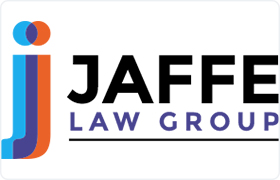Eastpointe White Collar Crime Lawyer, Michigan
Sponsored Law Firm
-
 x
x

Click For More Info:
-
Jaffe Law Group
30701 Barrington Street Madison Heights, MI 48071» view mapCriminal Law Advocates for Oakland County
For over three decades, Jaffe Law Group has helped individuals accused of crime, families dealing with tough legal matters, and injury victims get through a difficult time.
248-522-9545
Christopher M. Metry
Traffic, Domestic Violence & Neglect, White Collar Crime, Criminal, DUI-DWI
Status: In Good Standing Licensed: 13 Years
Sarah Elizabeth Coats
Occupational Safety & Health, Employee Rights, Family Law, White Collar Crime
Status: In Good Standing Licensed: 22 Years
Noah Page Hood
Litigation, Lawsuit & Dispute, White Collar Crime, Criminal
Status: In Good Standing Licensed: 13 Years
Matthew R. Abel
Real Estate, White Collar Crime, Trade Associations, Business Organization, Business
Status: In Good Standing Licensed: 40 Years
Rahm W. Mormando
Traffic, Domestic Violence & Neglect, White Collar Crime, Criminal
Status: In Good Standing Licensed: 10 Years
Jeffrey G. Collins
Litigation, White Collar Crime, Criminal, Business & Trade
Status: In Good Standing Licensed: 40 Years
Richard E. Zuckerman
Class Action, White Collar Crime, RICO Act, Antitrust
Status: In Good Standing Licensed: 50 Years
Bernard Michael Ortwein
Litigation, White Collar Crime, Criminal
Status: In Good Standing Licensed: 10 Years
 Brent Jaffe Madison Heights, MI
Brent Jaffe Madison Heights, MI AboutJaffe Law Group
AboutJaffe Law Group Practice AreasExpertise
Practice AreasExpertise
